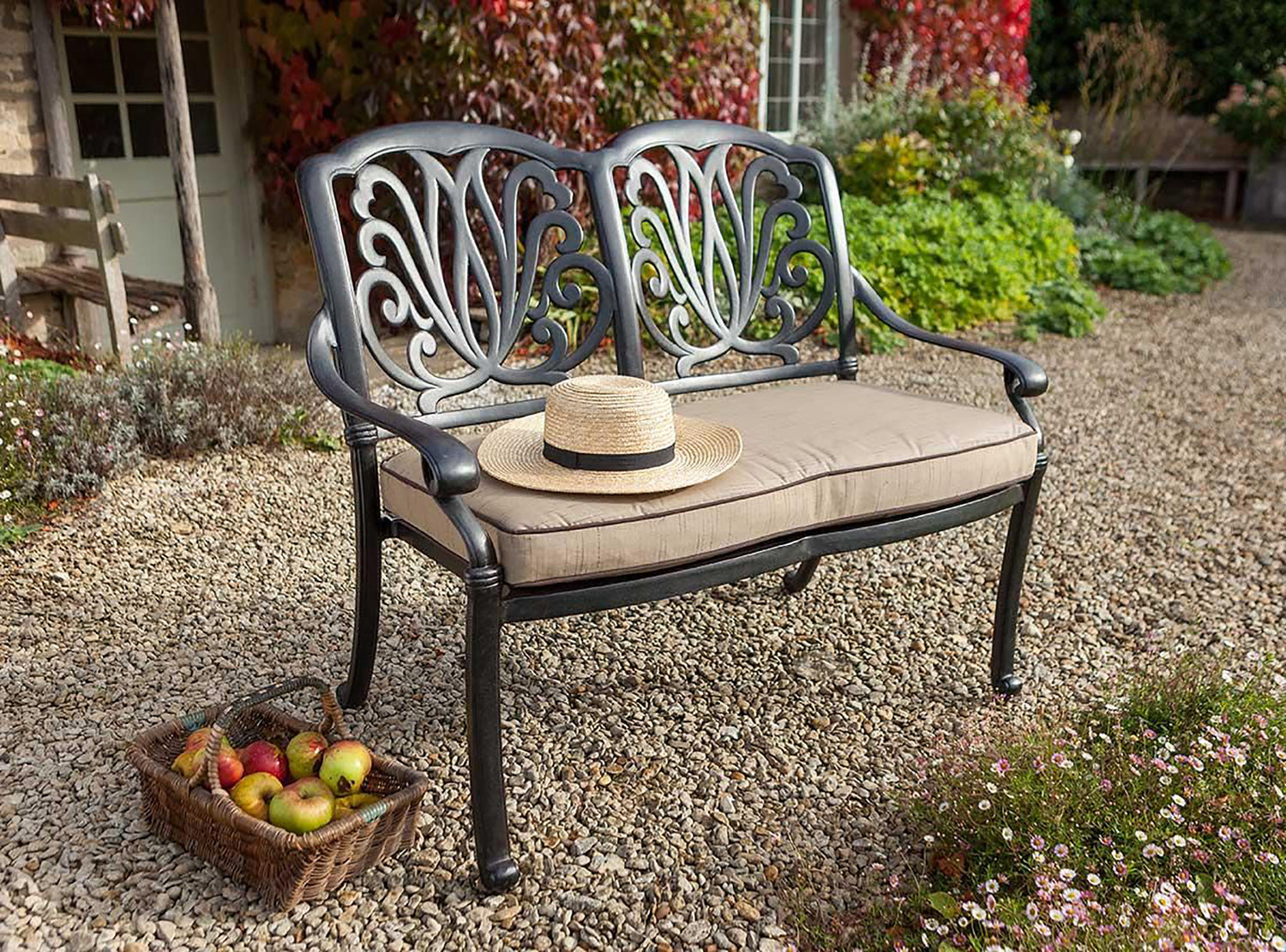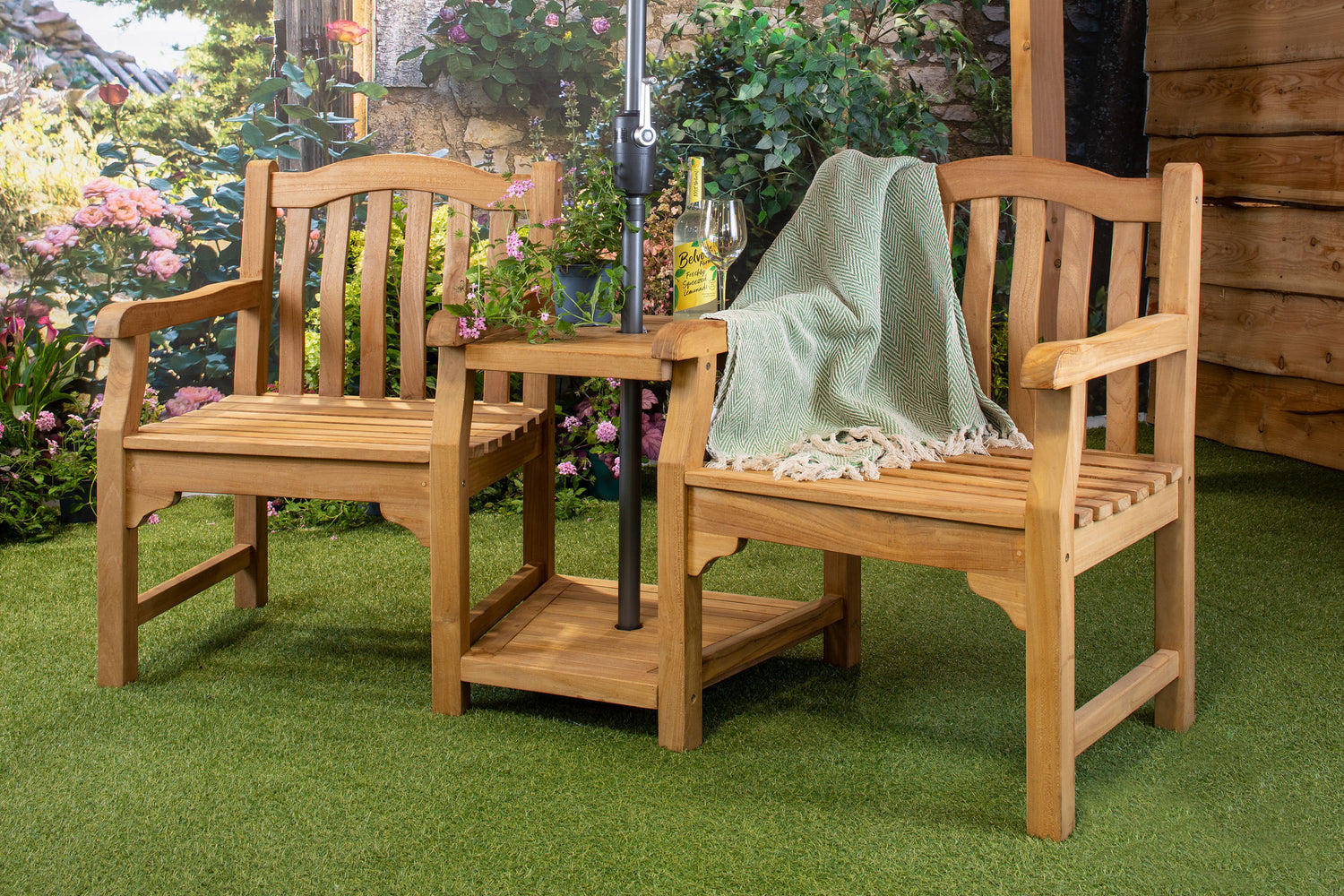Midges and mosquitos can ruin a BBQ or summer evening
Midges and mosquitos can turn a lovely evening socialising in the garden or a BBQ into an irritating nightmare. The little blighters get up your nose; both literally and metaphorically, into your food and seem to delight in taking swimming lessons in your drink. You can slather yourself in insect repellent, but not everyone is keen on covering themselves in chemicals. You can burn the natural citronella candles or a pyrethrum based repellent coil.

One way to cut down on these pests is to make sure you don’t have stagnant standing water in the garden; make sure the bird bath is kept clear of algae and the water changed every couple of days and make sure the pond has a pump to keep the water moving. If you can, put up nests under the eaves for House Martins and leave a space for Swifts and Swallows to gain access to your shed or garage where they can nest; these little aerial acrobats will eat thousands of midges in a single night.

There are quite a few plants which will also help deter these pests. Either plant them near your seating or BBQ areas or else in pots which you can then move to any position.
Ageratum
This is a summer annual with small blue powder puff flowers which grows to a height of about 15cm (6”).
Basil
This versatile herb can be planted outside in the garden or in pots, or indoors in pots placed close to the window to deter insects from entering. It is easily sown from seed in spring or plants are readily available from garden centres. Beware of plants bought in the supermarket, they usually haven’t been hardened off so won’t take too kindly to being planted outside. Planted near the BBQ they are handy for adding to the pizza at the last minute.

Catmint (Nepeta)
Don’t plant this anywhere near any precious plants as cats just love rolling around on this plant.
Citronella (Lemon Grass; East Indian Plant) (Cymbopogon citratus)
This is a tall (180cm; 6’) grass which will form a large clump. It is not that common in the UK but is available from a few specialist nurseries. It likes moist soil in full sun but is not hardy so in the UK it must be brought into a frost free environment over winter. It is propagated by dividing the large clump into smaller pieces in spring. It can also be used in Asian and Thai cooking, having a slight lemony taste. It has anti-fungal properties and can be dried and drunk as a tea.
Eucalyptus
The most effective way of deterring insects with this plant is to crush the leaves and scatter around the seating or BBQ area. They can become quite large trees so make sure you keep cutting them back to keep them to a manageable size, unless you have the space for a 9m (30’) tree.

Garlic
Cut the bulbs into small pieces and scatter around the seating or BBQ area.
Geranium,scented leaved (Pelergonium citrosum)
The lemon scented leaved variety is most effective at deterring insects, but the annual bedding varieties will also work to a lesser extent, especially if they are planted en masse. Take the plant indoors over the winter and keep it on the dry side, just giving it a little water to stop it drying out. Cut it back in the spring to about 5cm (2”) and re-pot if it has filled its pot with roots. It will then be ready to put outside again once the frosts have finished.
Lavender
This is an aromatic plant which can be planted besides the seating or BBQ area or cut and placed besides the windows and doors to deter insects from entering the house. If you are planting it in the ground make sure the soil is well-draining by adding a little horticultural grit if necessary. They can easily be grown in a pot, just plant in good quality loam based compost mixed with a little grit to improve drainage. Position it in a sunny spot.
Lemon balm (Melissa officinalis)
This herbaceous perennial is easy to grow in most soils except where it stays wet in winter; if it becomes unruly it can be cut back to the bottom. The leaves can be crushed and rubbed on the skin to act as an insect repellent.
Lemon thyme (Thymus x citriodus)
This is an easy to grow herb just needing a sunny, well-draining position. It is an excellent ground cover plant which looks fantastic growing in cracks in the paving or in a wall. This can be used on the skin as a repellent. It is also attractive to bees.

Lemon verbena (Aloysia citrodora)
This can be used in the same manner as the thyme and the balm. It is an herbaceous perennial which needs a light, free-draining soil in a sunny position which will be sheltered in winter. It also makes a delicious herbal tea.
Marigolds
These pungent flowers can be planted near seating or BBQ areas at the doorways; or the flowers cut and put in the house near the window to deter insects from entering.
Pennyroyal (Mentha pulegium)
This invasive member of the mint family is best contained in a pot; just plant in any good quality, free-draining peat free compost. Keep pinching out the tips to keep it bushy and under control. Dried leaves can also be used in pet bedding to deter fleas. On no account ingest the plant; even though it is a member of the mint family it can have serious side effects if eaten, so don’t use it on the BBQ or as a herbal tea. Don’t plant it if you have children.
Peppermint (Mentha x piperita)
This will grow almost anywhere except in a dry, hot spot; but it does prefer a moist, shady position. It can be invasive so unless you have plenty of space for it to run amok it would be better planted in a container in good quality compost. Unlike the Pennyroyal it is safe to eat and can be used as a herbal tea or as flavouring in sweets and cakes. It has the added bonus of being a good nectar source for bees.
Rosemary
This needs the same conditions as Lavender.

Home-made citronella spray:
Put a cup of distilled water (it doesn’t contain any impurities) into a spray bottle and add 3 tbsp. citronella oil, I tbsp. eucalyptus oil and 2 cups vinegar then shake vigorously. Don’t spray it anywhere near the face.




![Kingsbury-bench-05[1].jpg](http://www.hayesgardenworld.co.uk/cdn/shop/files/Kingsbury-bench-05_5B1_5D.jpg?v=1712162737&width=1500)
![Kingsbury-bench-01[1].jpg](http://www.hayesgardenworld.co.uk/cdn/shop/files/Kingsbury-bench-01_5B1_5D.jpg?v=1712161065&width=1500)
![tw17a-4947_0[1].jpg](http://www.hayesgardenworld.co.uk/cdn/shop/files/tw17a-4947_0_5B1_5D.jpg?v=1712161495&width=1500)
![tw17a-4947_tenbury_5ft[1].jpg](http://www.hayesgardenworld.co.uk/cdn/shop/files/tw17a-4947_tenbury_5ft_5B1_5D.jpg?v=1712161172&width=1500)
![tw17a-4952_tenbury_4ft[1].jpg](http://www.hayesgardenworld.co.uk/cdn/shop/files/tw17a-4952_tenbury_4ft_5B1_5D.jpg?v=1712161034&width=1500)
![thumbnail_IMG_1565-kik_2[1].jpg](http://www.hayesgardenworld.co.uk/cdn/shop/files/thumbnail_IMG_1565-kik_2_5B1_5D.jpg?v=1712226536&width=1500)
![thumbnail_IMG_1565-kik_1[3].jpg](http://www.hayesgardenworld.co.uk/cdn/shop/files/thumbnail_IMG_1565-kik_1_5B3_5D.jpg?v=1712159637&width=1500)



![WD-XgESA[1].jpeg](http://www.hayesgardenworld.co.uk/cdn/shop/files/WD-XgESA_5B1_5D.jpg?v=1712159609&width=1500)